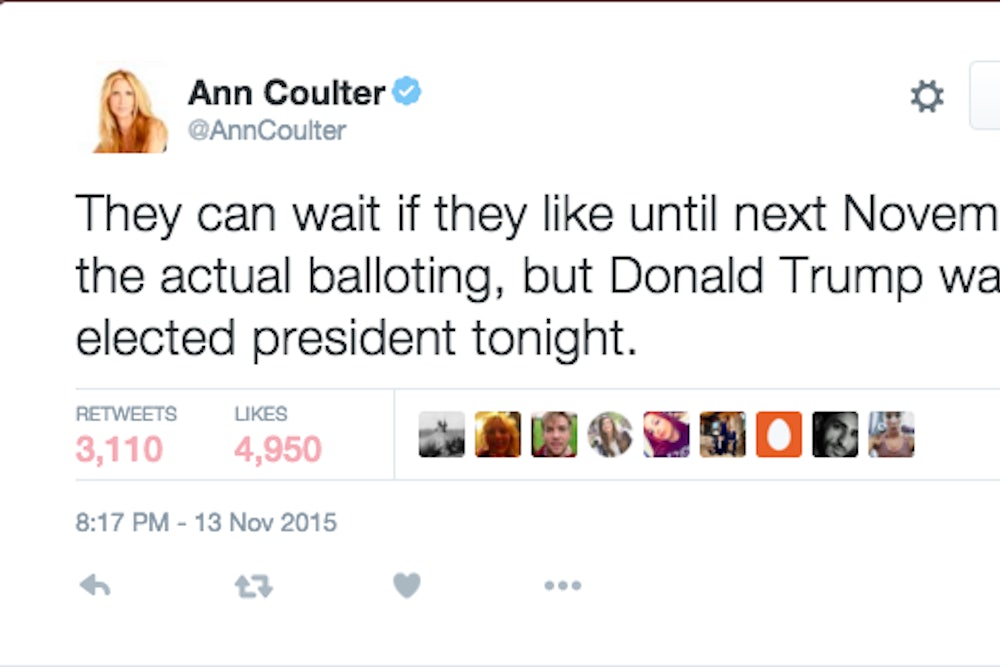In the wake of the November 13 ISIS-linked shootings in Paris that killed 130 civilians, some pundits prepared for Trump’s collapse. Polls conducted immediately after the attacks suggested the Donald had suffered a massive drop in support, and analysts theorized that, with dark times ahead, voters would want someone more experienced in the White House than the rust-hued reality television star.
But as the days passed, polls reflecting a Trump bust began to look like a fluke. By November 27, Huffington Post’s polling had Trump up by 5 percent, and Real Clear Politics by roughly 3 percent. What happened?
On one hand, maybe Ann Coulter was right, and in the wake of such horrific violence (including the San Bernardino attack, which took place shortly after), the American people turned not toward a calm, experienced, expert-type, but toward someone who reflected their anger and outrage as clearly as Trump. This might have made his remarks about blocking all Muslim travel into the U.S. and his claim that “thousands” of Muslims cheered on 9/11 in New Jersey not only palatable to his base, but welcome.
On the other hand, maybe it was the media’s excoriation of Trump’s comments that gave the Donald an opportunity to play persecuted, and invited some poll-boosting doubling down from his voters. Whether a win for pure Islamophobia or some mixture of racism and anti-political correctness, Paris didn’t sink Donald, and he continues to thrive in the political climate it helped create.
